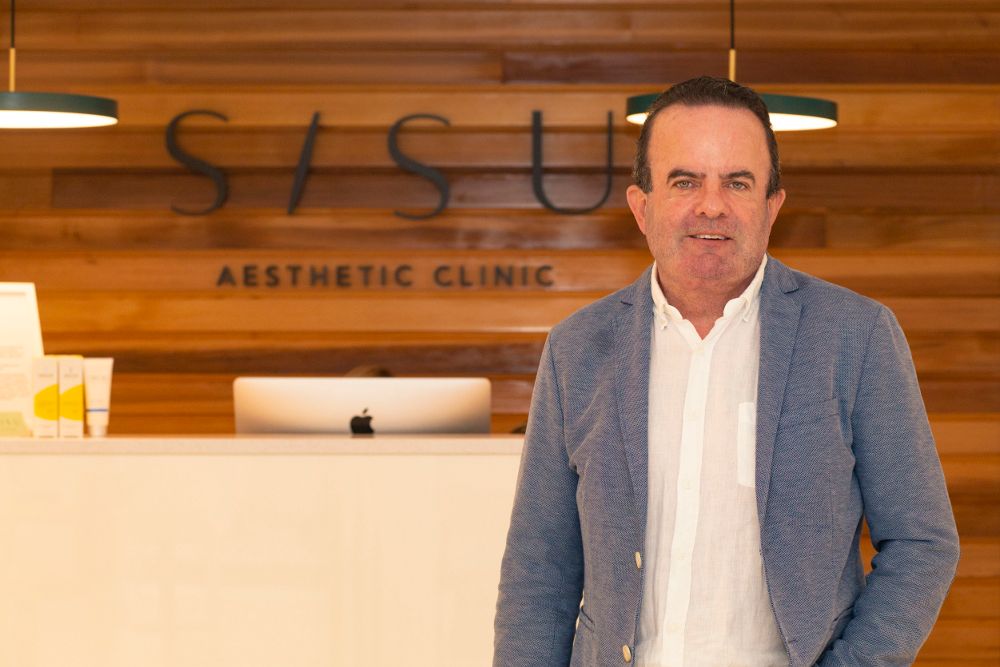Podcast Ep 126: Working with tech and fintech multinationals as well as Irish unicorns going global, Ed Rossiter reveals how Phoenix Search aims to keep on rising.
In recent weeks ThinkBusiness reported how young Irish recruitment firm Phoenix raised €1m to fuel local and international expansion plans.
Phoenix will establish its first US office in New York later this year and plans to grow their London office substantially in the coming 12 months also.
“I think like most services, it’s how you deliver and your approach which distinguishes you”
Currently at 40 employees, Phoenix hopes to increase its headcount to 60 by end of the year and 120 by end of next year, with the remainder of the positions being filled over the course of three years, reaching 250 by 2025
Founded by Ed Rossiter in 2018, Phoenix was created to address the weaknesses in the traditional recruitment process and elevate the industry’s quality of service.
Rossiter was joined by co-CEO Ruth Lyndon and Director, David Harrington shortly after founding the brand, and they have since grown the company to three locations and 40 employees. It offers recruitment services to companies within the tech, fintech, financial services, and professional services space. Phoenix caters to Irish companies looking to expand into the US, but also in the UK and across Europe.
Many of these companies are FDI businesses, but a considerable few are also among Ireland’s seven tech unicorns.
Rossiter spoke on The ThinkBusiness podcast about the young recruitment firm’s rapid scale-up journey by redefining how recruitment is executed.
Phoenix rising
He begins by pointing out how the recruitment business is always closely linked to the economic situation of countries and recalled how the pandemic in 2020/2021 was confronting but gave Phoenix the fuel to thrive.
“For a business that was just over a year old at the time, that was certainly a scary period. But through that we were lucky that our client base continued to grow and continue to hire. And actually, outside of it being a tragic period for most people, from a business perspective, it was actually a really prosperous time for us. Some agencies were looking to cut costs, we maybe were a little bit braver, and hired some amazing people in that time. We totally accelerated our growth. But in terms of our plan, it’s certainly on track to where we want to be by the end of 2022.”
It’s an interesting time to be in recruitment when you think about trends such as the Great Resignation or the Great Disconnection, tightening of belts within the tech sector, full employment and rising inflation. Most businesses are grappling with employee engagement in a hybrid work environment, staff are jealously protecting their remote work privileges and at the same time there’s a feeling that there’s more than winter coming.
To compete, I put it to Rossiter that Phoenix has to strive to be different than most recruitment firms.
“I think like most services, it’s how you deliver and your approach which distinguishes you. By the time we set up in 2018, the initial vision of the business probably had been knocking around my head for a number of years at that stage. I was lucky to start out in recruitment within BDO, the accountancy firm; they happen to have an executive search practice in Limerick when I was there and I caught the recruitment bug there and quickly moved into Morgan McKinley. It’s an incredible place. And I got great training there for a number years and took opportunities to move to Dublin with them. But in general, I think recruitment gets a hard time from an industry perspective.
“And I think even anecdotally, you’d hear horror stories more regularly than then you’d want to in terms of service levels, and we’re lucky my business partner Ruth Linden, is a qualified solicitor and worked with some of the major law firms here in in Ireland. And I believe that recruitment should be akin to any other professional service and you know, when you think that you need the best legal advice, you go to the top law firms, the best accounting or advisory advice, you go to the Big Four, or top 10.
“You know, there there’s certainly room for that in recruitment. And I think an elevated level of service delivery and quality of services is probably what was needed. I won’t go as far to say that the recruitment model itself is broken, but we felt there was probably better ways to interact with people as well.”
Scaling globally
Phoenix Search’s growth plans are quite ambitious when you consider the business aims to be at 250 people by 2025. Asked what is driving the growth, Rossiter said the business was international from the start.
“I suppose we would probably cheekily say we’re Ireland’s fastest growing recruitment brand. We’ve grown from 10 people in January last year to more than 40 today. And we have offices now in Limerick, Dublin and in London. We’re launching our first US office in September and we’ll be at 250 people by the end of 2025.
“IFor us it has always been about going global, having an international presence and serving clients from one country to another and adding value that way. We recently did a podcast with Pat Phelan of SISU fame, and he gave us a great piece of advice. He said: ‘Get off the island as soon as you can’. So we’ve gone international, like he’s done obviously many times.”
Ireland has no doubt benefited from the exodus of financial services from London as a result of Brexit, the country is still playing a blinder when it comes to inward investment and is awash with growing indigenous and global tech businesses. I ask Rossiter if fintech and tech are the pillars of the Phoenix business in Ireland?
“We primarily focus on the tech and fintech space, with professional services and financial services as well. Obviously, you have the more regulated environments within the financial services space, which, you know, is I would say probably been more explosive growth and in the years gone by because of Brexit, but has always been a stable area of growth. Tech has obviously been quite explosive in terms of growth in the last few years. There certainly has been a correction globally in the last few months for various reasons.”
Rossiter asserts he’s not troubled by signs from the US that tech is slowing down or suggestions that inward investment drying up.
“We’re in a slightly unique position; we do a lot of work in the US and Europe as well. And we’re lucky enough to work with four or five Irish unicorns and launching them into international markets. So I guess we’ve built up a lot of insight into to global markets, as well as obviously, the local market here.
“I think venture capital money over the last few years has been plentiful. Not to say that it’s been easy, but there’s certainly been a big influx of capital, even locally, you’re seeing funds still being set up. So I think the key thing for us and this is a guess from speaking to people in the venture capital world, there’s still a lot of unused capital waiting to be deployed. It’s probably a holding period now to see what the world looks like for various reasons. But there’s certainly a lot of capital. I recently spoke to someone with one of the large venture capital funds and by his estimates, there’s about €40bn in Europe alone ready to be deployed and hundreds of billions in the US to be deployed once the markets open up again.
“There’s still companies raising money in the tech and fintech space, but I think certainly it’s going to be harder. Businesses that have a pretty dependable revenue stream will do a lot better than start-ups that have given away a very high percentage of their business to venture capitalists without any revenue streams. So that’s certainly where the pressure will be.
“And again, speaking to key people in those markets, you’ve certainly seen a slowdown of hiring across sales and marketing. There’s been a few situations where, you know, companies that we’ve dealt with over the years have been told to keep the cash in the bank and that’s the priority for the next few years.
“Venture capital funds are likely to wait and see what happens next. And I think that’s the big thing to remember, venture capital funds only get their management fees when it’s deployed, not when it’s raised. They’ll just probably have stricter valuations and stricter criteria in order to invest.”
Entrepreneurship flows in Rossiter’s veins. His father had multiple businesses. While in college he worked at his father’s software business and recalls his father leaving for Germany in the early 1990s to work on building sites to bring in the money. So a firm work ethic has been ingrained. Graduating in 2010 on the heels of the financial crash, in his native Limerick he set up a social magazine that sold 10,000 copies a month.
“My mom is a nurse and, more importantly, a farmer’s daughter with a ‘get up and get after it’ attitude that has stuck with me.”





